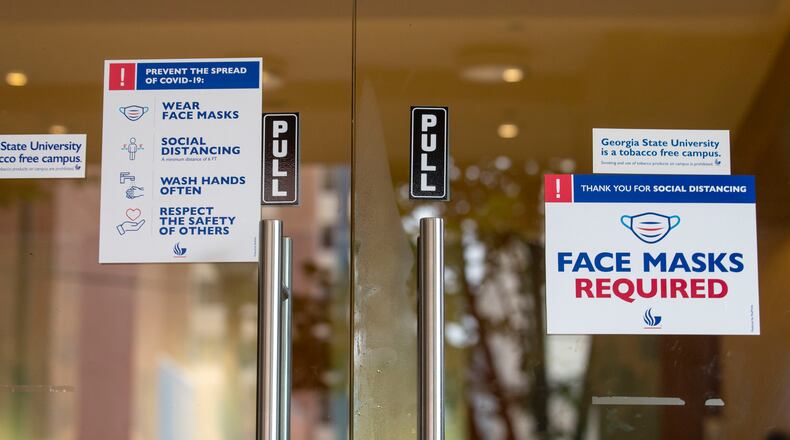A Georgia State University public health team will study why Black communities in Atlanta decide whether or not to participate in COVID-19 research studies.
The research, funded through a two-year, $1.3 million grant from the National Institutes of Health comes through the RADx Underserved Populations Program, which has a goal of understanding and reducing inconsistencies in COVID-19 testing among vulnerable or underserved populations around the United States. Georgia State is one of 55 institutions to receive an award from NIH for COVID-19 testing projects, according to a news release from the university.
One of these vulnerable populations is African Americans, who make up 13% of the U.S. population but account for 20% of diagnosed SARS-CoV-2 (the virus that causes COVID-19) infections and 22% of associated deaths, according to the release. There is limited testing among minority groups, which contributes to an incomplete picture of how much the coronavirus affects Black people.
The research team consists of professors of epidemiology, psychology and sociology at Georgia State and will be led by Heather Bradley, an assistant professor of epidemiology in the School of Public Health.
In addition to the research team, there will be a community advisory board made up of leaders of organizations serving Atlanta’s Black communities. Dazon Dixon Diallo, one of the co-investigators of the study and founder of SisterLove, Inc., will help build and lead the advisory board, said Dennis Reidy, one of the researchers on the project and an assistant professor of health promotion and behavior at Georgia State.
“One of the reasons we have really worked to bring on a community partnership is so that that community board, that advisory board really makes sure that research our team is doing is culturally and representatively respectful, appropriate and doesn’t lose sight of the community itself,” Reidy told The Atlanta Journal-Constitution.
Skepticism toward medical research may present a challenge, with Black communities historically distrusting the health care system due to events such as the Tuskegee Experiment. This skepticism also plays a part in the underrepresentation of African Americans in COVID-19 vaccine trials, researchers have found.
The willingness to be tested for COVID-19 and receive a vaccine are tied together. For Reidy, a goal of the project is not only to increase participation and representation in testing, but also to utilize this information to increase trust and willingness to get the vaccine when one becomes available.
“Even though this is part of a greater NIH initiative for COVID testing in underserved populations, our goal is that this information will actually also be useful to increase willingness for vaccination ... willingness to trust the medical advice around COVID and other general Black health issues,” Reidy said.
About the Author
Keep Reading
The Latest
Featured


